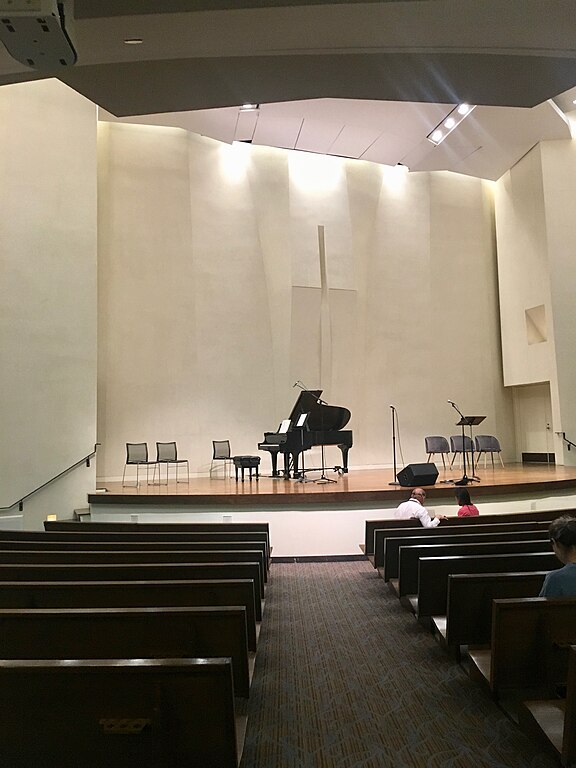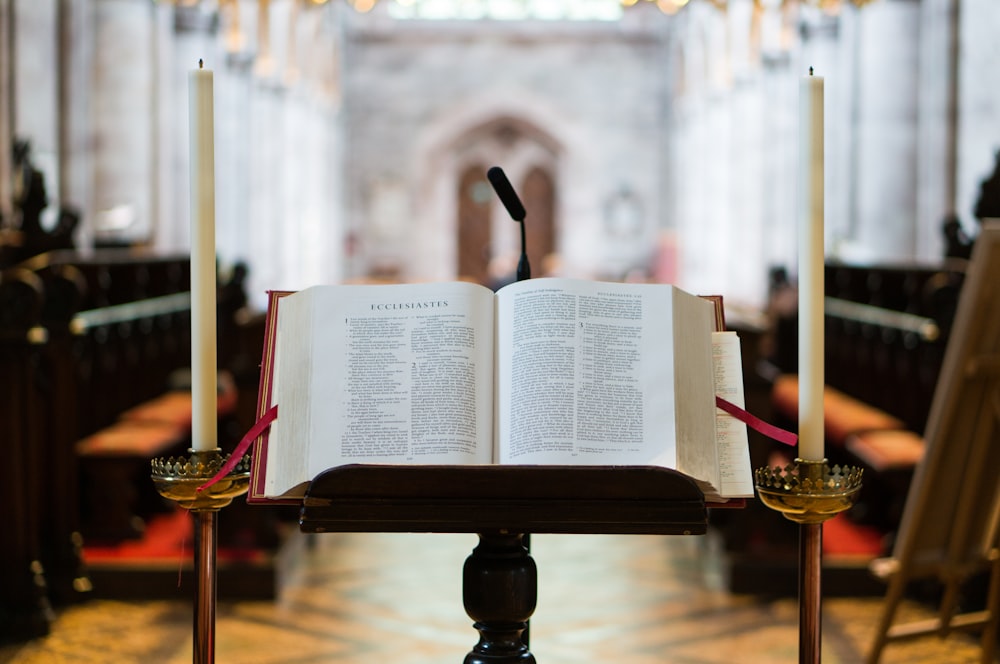20 Facts About Timothy J. Keller
“All death can now do to Christians is to make their lives infinitely better.”
Timothy J. Keller
As a practicing Christian, I am always fascinated by global Christian leaders. Known as one of the leading Christian thinkers of our time, Timothy Keller has had an outsized impact as a theologian, pastor, and apologist. Keller founded Redeemer Presbyterian Church in New York City in 1989, growing it from a small group meeting in an Upper East Side living room to a congregation of thousands.
His bestselling books, from The Reason for God to Prayer to Walking with God Through Pain and Suffering, have introduced millions worldwide to a thoughtful, Scripture-rooted approach to faith. Though he stepped down as senior pastor in 2017, Keller’s influence through his writings and the Redeemer network of churches continues to shape both the church and wider culture today.
1. He exhibited Interest in Ministry and Natural Leadership early in Life
Even as a youngster growing up in Pennsylvania, Timothy J. Keller exhibited early signs of natural leadership and shepherding abilities that would serve him well later in life. According to those who knew him during his formative high school years at Kutztown Area High School, Keller had a remarkable capacity to connect with, inspire, guide, and motivate others. His peers gravitated to him, recognizing his integrity, wisdom, and vision beyond his years.
Keller’s mentors also saw his leadership potential, discerning the makings of a shepherd capable of tending a much larger flock. From a young age, Tim Keller felt drawn to ministry and service. As a teenager, he was involved in Young Life and led Bible studies among his peers. This early interest set the stage for his future vocation.
2. Timothy J. Keller’s Incisive Intellect was shaped at an Elite Ivy League Institution

, Public domain, via Wikimedia Commons
Timothy J. Keller’s academic journey began at Bucknell University, a prestigious Ivy League institution located in Lewisburg, Pennsylvania. Bucknell provided fertile soil for Keller’s intellectual development and curiosity to take root. Surrounded by some of America’s brightest young scholars, Keller was stimulated and challenged at every turn.
His professors demanded academic rigor and excellence. Coursework across disciplines from theology to philosophy, literature, history, and more exercised his mind and honed his reasoning abilities. The experiences at Bucknell helped shape Keller’s incisive intellect and laid the foundations for serious theological inquiry. Bucknell awakened a hunger and thirst for knowledge that would propel him toward advanced theological training.
3. Tim Keller Experienced a Transformative Theological Awakening at Gordon-Conwell
The halls of Gordon-Conwell Theological Seminary in Massachusetts marked a transformative chapter in Timothy Keller’s life. His time at this prestigious evangelical institution deepened his theological convictions and equipped him for ministry. Gordon-Conwell exposed Keller to leading scholars and theologically robust coursework across church history, biblical languages, exegesis, preaching, counseling, ethics, apologetics, and more.
Space for spiritual maturation through prayer, and mentoring relationships with faculty facilitated profound personal introspection. Keller emerged with clarity of theological vision, depth of biblical insight, and skill set to handle the Word of God rightly. This rich theological awakening gave ballast for the storms of pastoral ministry ahead.
4. Rev. Keller’s First Pastorate was in a small town in Virginia
After graduating from Gordon-Conwell Theological Seminary, Keller served as pastor at West Hopewell Presbyterian Church in the small town of Hopewell, Virginia, which had a population of just 400 residents. While accustomed to city life, Keller and his wife, Kathy, adjusted to leading this small rural congregation.
This first pastorate proved formative for Keller, teaching him how to preach theologically rich sermons using simple terminology and illustrations that everyday parishioners could relate to and understand. Under Keller’s thoughtful and engaging leadership, the small church steadily grew during his pastoral tenure.
5. He Moved to New York City to Plant Churches Amid Skepticism and Challenge

, , via Wikimedia Commons
Feeling called to urban gospel ministry, Keller and his family moved to New York City in 1989 to help plant new churches in America’s largest, most influential city. They started Redeemer Presbyterian in Manhattan with less than 20 people initially meeting in an Upper East Side school auditorium.
Undeterred by the challenging skeptical soil of New York culture, Keller committed to preaching the gospel in a way that post-modern New Yorkers could comprehend and connect with, addressing common objections and making Christianity seem reasonable.
6. Rev. Keller Received Numerous Honors and Awards
Keller’s innovative yet orthodox Reformed ministry and thoughtful cultural engagement through writing have been recognized through various prestigious awards over the years. In 2010, he won Modern Reformation magazine’s top honor for contributions to theological renewal among contemporary Christians. The following year, Westminster Theological Seminary, his graduate school, granted Keller its highest award, the Abraham Kuyper Prize for Excellence in Reformed Theology and Public Witness.
This prize recognized his dynamic, culturally connected Redeemer church ministry and writing career. In addition, Beeson Divinity School named Keller their distinguished Alumnus of the Year in 2002 for his visionary work in New York City. Beyond these honors, Keller also holds over half a dozen honorary doctorates from various seminaries and universities affirming his work as a pastor, author, apologist, and public intellectual.
7. Under Rev. Keller’s Gifted Leadership Redeemer’s Grew to a Megachurch
Through Keller’s uniquely gifted preaching and strategic leadership, Redeemer Presbyterian grew far beyond anyone’s expectations, becoming one of the largest and most influential churches in New York City against all odds. Average Sunday attendance rose to over 5,000 people by 2013.
The church planted thriving daughter churches throughout NYC under Keller’s leadership and creative ministry approach. In 2020, the Redeemer family of churches, including West Side Church, Downtown Church, East Side Church and others announced plans to become completely independent, no longer needing any financial support from outside church planting organizations.
8. Timothy Keller is an Award-winning Christian Author

Photo by on
Leveraging his first-hand experiences engaging skeptical urban New York culture, Keller began writing apologetic books that effectively addressed common doubts and objections holding seekers back from faith. His first popular-level book, The Reason for God (2008) became a number-one New York Times bestseller, making a compelling case for God and Christianity in secular terms.
Follow-up books like Making Sense of God (2016) and Finding God (2022) provided additional intellectual and philosophical support for embracing Christian belief amidst pervasive skepticism in contemporary culture. Keller brought Christian theology into mainstream conversation through his eloquent, nuanced, yet reasonable writing style.
9. Pastor Timothy Keller Co-Founded The Gospel Coalition
Alongside other Reformed church leaders like D.A. Carson, Keller helped co-found The Gospel Coalition (TGC) in 2005, establishing an influential broadly Reformed network for promoting gospel-centered ministry across denominational lines.
With Tim Keller and Don Carson serving as its inaugural presidents, TGC created popular conferences and an increasingly well-read website publishing Christian commentary, articles, and resources by various pastors and theologians. Under Keller’s discerning leadership, TGC embodied thoughtful, nuanced evangelical cultural and theological engagement.
10. He Contributed Insightful Commentary on Christianity’s Relationship to Culture
Throughout his long ministry career in New York City, Keller has offered discerning cultural analysis from a thoughtful Christian perspective through his sermons, speeches, and writings. His “fringe benefits” thesis, articulated in Center Church (2012) and other books, suggests Christianity uniquely gives meaning, motivation and a basis for human rights and justice, indirectly leading to societal flourishing.
Moving beyond typical divisive “culture wars,” Keller finds nuance and insight in debates on sexuality, social justice, identity politics and more. For Keller, the gospel speaks insightfully to even the most complex cultural issues if Christians humbly listen first. His reasonable voice has brought refreshing perspective.
11. His Redeemer City-to-City to Equipped Leaders and Spread the Gospel Globally
In 2001, Keller helped start the Redeemer City-to-City church planting network to train leaders and support gospel movements around the world. Expanding on Redeemer’s success as a gospel-centered, community-oriented church in New York City, the City-to-City network has helped plant over 500 new churches in 100 cities globally.
Blending Tim Keller’s philosophy of gospel-contextualized, mercy and justice-oriented ministry with on-the-ground logistical support, the network cultivates and resources local leaders to launch churches that serve their communities with the good news of Jesus. These city churches are empowered to creatively address unique urban challenges in their contexts while staying grounded in the core tenets of the Christian gospel.
12. Keller Orchestrated a Systematic Transition of Redeemer Church Leadership

, , via Wikimedia Commons
In 2017, just over 25 years after ambitiously starting Redeemer as an unwelcome church plant in New York City, Keller carefully handed the senior pastor role over to his hand-picked successors. While no longer providing daily preaching and leadership, he continues to produce written and video teachings expanding his influence through Redeemer’s City to City initiative.
Through directly training other urban ministers in the Redeemer model and providing multimedia curriculum to churches worldwide, Keller’s fruitful ministry philosophy and legacy will positively impact many more leaders and congregations than just those at one local NYC congregation. His thoughtful model for dynamic, gospel-centered, cities-focused evangelical ministry continues to creatively spread and be contextually adapted through his ongoing nonprofit work.
13. In Retirement he Continued Writing and Nonprofit Leadership
Though no longer serving as a lead pastor, Keller stays actively involved in ministry writing, speaking, teaching, and serving on various ministry boards. He continues to publish best-selling, thoughtful books on relating issues of Christian faith, work, hope and gospel truth to modern culture from a compassionate yet orthodox perspective.
Beyond writing, Keller also provides respected leadership as chairman and co-founder of Redeemer City-to-City, editorial director of The Gospel Coalition, the chairman of the Center for Faith and Work, and board member for other organizations cultivating spiritual renewal in global cities. Though not a firebrand, his calm, nuanced voice continues to shape many key conversations about the interplay between historic Christianity and contemporary questions.
14. The Reverend Advocated for Racial Reconciliation and Diversity of Shared Identity in the Gospel

, , via Wikimedia Commons
Throughout his ministry career, Keller has emphasized racial reconciliation and cross-cultural gospel unity even while supporting marginalized ethnic groups joining together to find their voice. He coauthored The Gospel and Race equipping churches to engage the divisive topic of systemic racism with sensitivity and moral clarity rooted in scripture. While some progressives critique Keller as too theologically conservative on issues like sexuality, he continues to engage social justice concerns like racism.
Keller ties racism fundamentally to idolatry—making race or any worldly category an absolute identity marker, rather than finding our shared identity solely through being made equally in the image of God. Though coming from a more politically conservative background himself, Keller has long advocated for multi-ethnic urban churches.
15. Rev. Keller Prioritized Mercy and Justice Ministry
Contrary to common perceptions of orthodox churches as inwardly focused on their own congregation, Redeemer Church under Keller’s leadership invested heavily in mercy and justice ministries alongside evangelism and discipleship. Driven by a biblical vision to serve the poor, marginalized and oppressed, Redeemer planted daughter churches in prisons, homeless shelters, AIDS hospices and more.
In founding the Center for Faith and Work, Redeemer has strived to connect Christian faith to vocational stewardship for the sake of human flourishing in NYC. Keller’s approach to gospel-motivated mercy ministry aims to dignify the poor without minimizing the primacy of evangelism and conversion. Redeemer defies stereotypes of theologically conservative churches.
16. He Headlined Speaking Engagements at Prestigious Forums
As a gifted communicator capable of bridging historic Christian orthodoxy with secular and skeptical audiences, Keller is regularly invited as an honored guest speaker at high-profile forums. He has addressed venues like the Aspen Ideas Institute, the UK’s premier London Skeptics in the Pub program, Veritas Forum conferences on university campuses and TED-style City 2.0 events sponsored by The Economist. Keller’s reasoned and disarming approach representing broad mere Christian orthodoxy has opened increased opportunity for engagement among secular thought leorthodoxy aders and power brokers who control influential platforms.
17. Tim Keller Planted Churches with Traditional Liturgy
Unlike many trendy startup churches targeting young urbanites, Redeemer Church contextualized ministry for secular New Yorkers by employing components of historic Christian liturgy modified for the city. Keller believed time-tested, gospel-saturated church worship rooted in historic practices would best engage NYC skepticism over consumerist Christianity.
Redeemer blended theological depth, social diversity, activism for justice and cultural creativity with simple forms and prayers drawn from books of common prayer tradition along with accessible yet intellectually rigorous gospel-centered preaching. This model would prove surprisingly effective at drawing unchurched and dechurched New Yorkers often seeking substance and beauty over shallow positivity.
18. The Anglican Influence on His Ministry
While leading a Presbyterian church community, Keller draws heavily on Anglican theology and practice to frame various dimensions of ministry. Key Anglican emphases like living all of life to the glory of God, expressing gospel motivation for serving community needs and embracing both social justice and evangelistic callings have deeply impacted Keller’s philosophy of ministry.
He has sought to balance the doctrinal rigor and predestination views characteristic of Reformed theology with a generous Anglican spirituality that applies the gospel to all dimensions of life. For Keller, this type of hybrid theological approach allowing multiple emphases best suits the diversity and complexity of ministry within global cities like New York.
19. Timothy Keller Views on Pastoral Ministry in Megachurches
In his 30s during early years of ministry, Keller held some critical views of megachurch pastors based on assumptions about shallowness in theology and reliance on charisma or performance-based leadership common across evangelicals. However, his perspective dramatically changed after building relationships with national ministry leaders like John Wimber, C.J. Mahaney and John Piper whose personal integrity, authentic humility, and theological depth defied many stereotypes.
Keller observed firsthand how, despite enjoying massive influence, these pastors maintained gospel-centrality and resisted ego-driven leadership pitfalls. Their compelling examples expanded Keller’s vision for how humility and orthodoxy can thrive even within exponentially growing church movements. These relationships profoundly shaped Keller’s philosophy of ministry.
20. Rev. Keller Battled Throat Cancer

, , via Wikimedia Commons
In 2002, Keller received the sobering news that he had thyroid cancer which doctors warned could eventually spread to his vocal cords over the course of several years. This was a devastating blow, as his ability to preach and teach was central to his calling as a pastor. After undergoing surgery and radiation treatments, he slowly regained vocal strength in his damaged cords. Ironically, this occurred just as his church, Redeemer Presbyterian, began experiencing explosive growth in attendance.
Reflecting later on the timing of his illness, Keller viewed it as a timely period of preparation and rest ordered by God to equip him for the extreme busyness of shepherding a large, rapidly-growing church. At the time, the cancer could easily have ended his fruitful ministry. Yet God brought astonishing fruitfulness out of this trial, using it to shape Keller for greater future impact.
In his decades of ministry and cultural engagement, Tim Keller has left an indelible mark as both a pastor to thousands and an apologist translating historic Christian orthodoxy for a postmodern world. While he hardly sought fame, his commitment to combine rigorous intellectual grappling with a heart for serving others has fueled an expansive reach. Regardless of what one thinks about Keller’s theological positions, it’s hard to deny the unique role he has played in shaping Christianity’s public voice at a crucial juncture in American society.
Planning a trip to Paris ? Get ready !
These are ���������Dz�’�����������-����������Բ� travel products that you may need for coming to Paris.
Bookstore
- The best travel book : Rick Steves – Paris 2023 –��
- Fodor’s Paris 2024 –��
Travel Gear
- Venture Pal Lightweight Backpack –��
- Samsonite Winfield 2 28″ Luggage –��
- Swig Savvy’s Stainless Steel Insulated Water Bottle –��
We sometimes read this list just to find out what new travel products people are buying.











